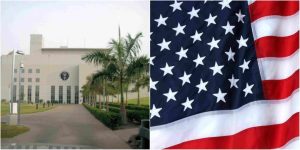
The administration of President Bola Ahmed Tinubu is under increasing pressure to reconsider the food import waiver announced in July 2024, as concerns mount over its potential impact on local industries and employment.
Sources within the Presidency revealed that the private sector is spearheading this pushback, arguing that unrestricted food imports could undermine domestic production, erode investments, and exacerbate unemployment.
While the waiver aimed to combat food inflation, critics describe it as a double-edged sword with significant economic risks.
Private Sector Concerns
A Presidency insider, speaking anonymously with The Punch, stated, “A lot of media outfits have been publishing on the failure of the government to implement the waiver on food imports.
“The real reason why the government is slowing it down is the need to protect local companies. Many local companies and groups like MAN (Manufacturers Association of Nigeria), LCCI (Lagos Chamber of Commerce and Industry) and industries have put pressure on the FG not to import food as that is not a solution. The focus should be to increase local production.”
Another source said members of the Organised Private Sector have insisted that “importation will kill local companies and jobs.”
Private sector operators have echoed these concerns, with some describing the policy as a temporary relief measure that risks long-term damage.
National Vice President of the Nigerian Association of Small-Scale Industrialists, Segun Kuti-George, said, “The food import waiver idea is a double-edged sword, and like any other issues you are trying to proffer solutions to, as you are trying to solve a problem, you are likely to be giving rise to another problem.
“What usually informs decision making is that when you weigh the pros and cons, ascertain whether the pros are higher than the cons before going ahead.
“All we need to do is to weigh it on a scale to ascertain which has more advantage.”
The Waiver Plan
Announced by Agriculture Minister Abubakar Kyari on July 10, 2024, the policy suspended duties, tariffs, and taxes on importing maize, husked brown rice, wheat, and cowpeas for 150 days.
Kyari had said, “To ameliorate food inflation in the country caused by affordability and exacerbated by availability, the government has taken a raft of measures to be implemented over the next 180 days.
“A 150-day duty-free import window for food commodities, suspension of duties, tariffs, and taxes for the importation of certain food commodities (through land and sea borders). These commodities include maize, husked brown rice, wheat, and cowpeas. Under this arrangement, imported food commodities will be subjected to a Recommended Retail Price.”
The government also planned to import 250,000 metric tonnes of wheat and maize for distribution to small-scale processors and millers.
However, the implementation has stalled, leaving Nigerians to grapple with rising hunger.
In the third quarter of 2024, the Nigeria Customs Service estimated that the government could lose ₦188.37 billion in revenue over six months due to the waiver.
Additionally, companies wishing to benefit from the policy were required to be at least five years old and registered in Nigeria, further complicating execution.
Reactions from Stakeholders
Critics, including small business advocates and economists, argue that the waiver’s non-implementation reflects policy inconsistencies and government inefficiency.
President of the Association of Small Business Owners of Nigeria, Femi Egbesola, lamented, “We had blame games going on for different reasons among key implementers, particularly between the Nigeria Customs Service and Federal Ministry of Finance for the justification of non-implementation.
“It speaks to the anarchy among government MDAs, resulting in policy somersaults, and causing untold hardship on the economy and the citizens.
“Standard global practice is that if your country has a huge food deficit, the government must find a way to bridge the gap, most times on a short term through imports and plan medium and long term solutions by supporting, intervening and incentivising the agriculture sector. At times even with subsidies. The life and wellbeing of an average Nigerian should be of topmost priority and shouldn’t be mortgaged on the table of business or profiteering.”
Economist and sustainability expert, Marcel Okeke, also highlighted the risks of undermining local producers.
“There are implications given our system. You know the corruption in the system. Implementation is the challenge. You know the gatekeepers and the way they operate. Do you think everyone will fall in line?
“There is nothing that they want to import that is not being produced by someone here in Nigeria already. The issue is the insufficiency of the production which is why demand is outstripping supply.
“The waiver is like pricing the local producers out of existence. There was a time in this country when we had so many of them in the textile industry when the government opened up to allow different textiles to come in, that was the death of the sector,” he said.
Okeke further pointed out that poor quality control could lead to substandard imports flooding the market, emphasizing the need for self-reliance in food production.
“I’m doubtful if this initiative will be properly implemented and that this door will be opened and shut within the specified period. What will happen within that time is likely to go out of the government’s control and will spell a calamity for local producers of those items.
“Also, since these local producers will now know it is cheaper and easier to import, why bother to kill themselves to produce in this inclement environment? Once the gate is opened, they will jump at it. If these people cannot stop the government from doing what it wants to do, they will join them.
“There will also be the challenge of quality. If care Is not taken, all kinds of quality will be dumped on the country. The best approach is to grow everything organically and that means encouraging people within our boundaries to be the ones to give us what we want. So importation will be to supplement what is being produced here,” he added.
Government’s Response
Finance Minister Wale Edun acknowledged the mounting pressure and assured stakeholders that the government is revisiting the policy to ensure it does not harm domestic food production.
“We are addressing emerging issues that will not make the policy undermine domestic food production capacity,” he said.
The post Hunger Crisis: Why Tinubu’s Food Import Policy Remains Unimplemented appeared first on Naija News.








